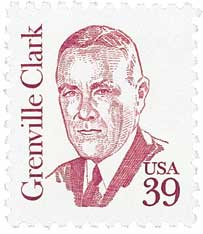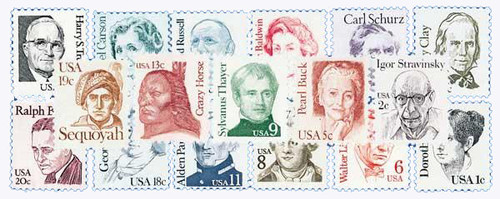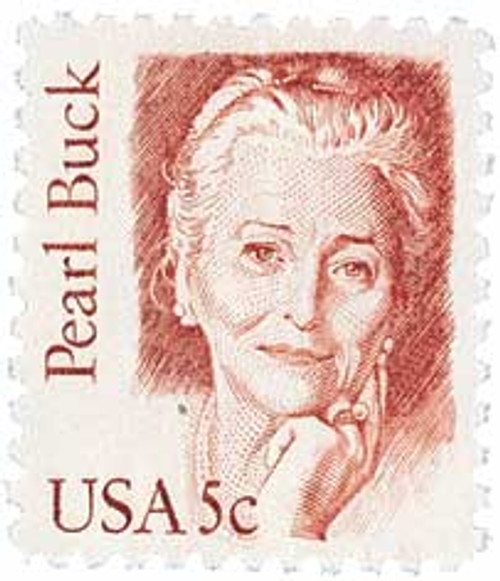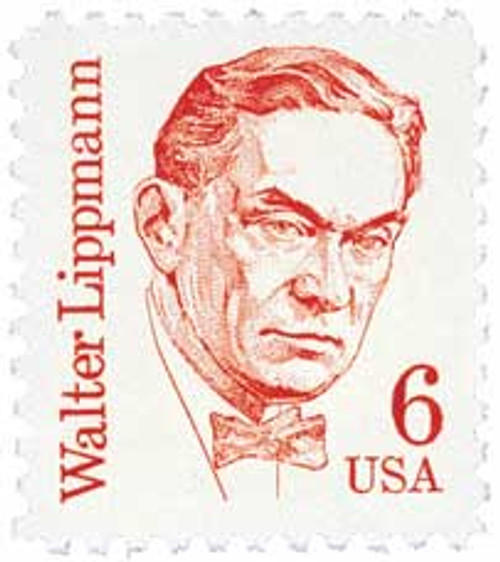
# 1867 FDC - 1985 39c Great Americans: Grenville Clark
An advocate of world peace, Grenville Clark established the "Plattsburgh Plan," a program which trained business and professional men to be officers in the Army. He and other prestigious businessmen used their own money to pay for food and uniforms for the training camps.
Happy Birthday Grenville Clark
Clark was born into a wealthy family and attended Harvard Law School. There he befriended future Supreme Court Justice Felix Frankfurter, who would become a lifelong friend and unofficial uncle to Clark’s children.
After graduating from Harvard, Clark co-founded the law firm of Root, Clark, and Bird. They later merged with Buckner and Howland and their practice became one of the most prestigious law firms in the nation. While initially dealing with traditional litigation, they began taking cases in bankruptcy, reorganization, and New Deal regulations during the Depression. They also built up a corporate practice and eventually had 74 associates.
As World War I approached, Clark dedicated himself to preparing America for the conflict, serving as a major in the Adjutant General’s Department of the US Army. He also helped to establish the Citizens’ Military Training Camp in Plattsburgh, New York. This was part of his “Plattsburgh Plan,” a program that trained business and professional men to be officers in the Army. He and other prestigious businessmen used their own money to pay for food and uniforms for the training camps.

After the war, Clark led the American Bar Association and was one of the five fellows of the Harvard Corporation. He also founded the American Bar Association’s Civil Liberties Committee and helped draft the Economy Act of 1933, which sought to reduce the federal deficit.
From 1940-41, Clark served as the chairman of the National Emergency Committee for Selective Service. In that position he helped draft the Selective Service Act of 1940, the nation’s first peacetime conscription law. He also worked toward American military preparedness and was a confidential counsel to the secretary of War.

After the Second World War, Clark became an advocate for peace through international law. He and several others met in Dublin, New Hampshire for the Dublin Conference. They found the UN Charter to be insufficient and sought to turn the UN General Assembly into a world legislature. Their proposal stated that, “Such a government should be based upon a constitution under which all peoples and nations will participate upon a basis of balanced representation which will take account of natural and industrial resources and other factors as well as population. It cannot be based on treaties…in which the states… act and vote as states.” Additionally, it called for “limited but definite and adequate power for the prevention of war.”

Clark published his beliefs in his influential 1958 book, World Peace Through World Law. Clark was also involved in aiding minorities in their struggle for civil rights during the 1960s. He raised $80,000 bail for the famous “Freedom Riders,” and donated $500,000 to the National Association for the Advancement of Colored People.
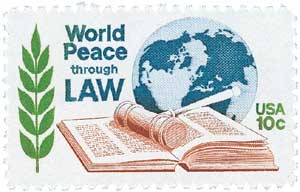
Clark was nominated for the Nobel Peace Prize several times over the years, but was never awarded it. He died on January 13, 1967. Today, Clark’s work continues through a grant made to Dartmouth College in Hanover, New Hampshire. The Dartmouth College “Grenville Clark Fund” awards grants to organizations that promote world peace through world law. Dartmouth College also houses Clark’s personal papers.
An advocate of world peace, Grenville Clark established the "Plattsburgh Plan," a program which trained business and professional men to be officers in the Army. He and other prestigious businessmen used their own money to pay for food and uniforms for the training camps.
Happy Birthday Grenville Clark
Clark was born into a wealthy family and attended Harvard Law School. There he befriended future Supreme Court Justice Felix Frankfurter, who would become a lifelong friend and unofficial uncle to Clark’s children.
After graduating from Harvard, Clark co-founded the law firm of Root, Clark, and Bird. They later merged with Buckner and Howland and their practice became one of the most prestigious law firms in the nation. While initially dealing with traditional litigation, they began taking cases in bankruptcy, reorganization, and New Deal regulations during the Depression. They also built up a corporate practice and eventually had 74 associates.
As World War I approached, Clark dedicated himself to preparing America for the conflict, serving as a major in the Adjutant General’s Department of the US Army. He also helped to establish the Citizens’ Military Training Camp in Plattsburgh, New York. This was part of his “Plattsburgh Plan,” a program that trained business and professional men to be officers in the Army. He and other prestigious businessmen used their own money to pay for food and uniforms for the training camps.

After the war, Clark led the American Bar Association and was one of the five fellows of the Harvard Corporation. He also founded the American Bar Association’s Civil Liberties Committee and helped draft the Economy Act of 1933, which sought to reduce the federal deficit.
From 1940-41, Clark served as the chairman of the National Emergency Committee for Selective Service. In that position he helped draft the Selective Service Act of 1940, the nation’s first peacetime conscription law. He also worked toward American military preparedness and was a confidential counsel to the secretary of War.

After the Second World War, Clark became an advocate for peace through international law. He and several others met in Dublin, New Hampshire for the Dublin Conference. They found the UN Charter to be insufficient and sought to turn the UN General Assembly into a world legislature. Their proposal stated that, “Such a government should be based upon a constitution under which all peoples and nations will participate upon a basis of balanced representation which will take account of natural and industrial resources and other factors as well as population. It cannot be based on treaties…in which the states… act and vote as states.” Additionally, it called for “limited but definite and adequate power for the prevention of war.”

Clark published his beliefs in his influential 1958 book, World Peace Through World Law. Clark was also involved in aiding minorities in their struggle for civil rights during the 1960s. He raised $80,000 bail for the famous “Freedom Riders,” and donated $500,000 to the National Association for the Advancement of Colored People.

Clark was nominated for the Nobel Peace Prize several times over the years, but was never awarded it. He died on January 13, 1967. Today, Clark’s work continues through a grant made to Dartmouth College in Hanover, New Hampshire. The Dartmouth College “Grenville Clark Fund” awards grants to organizations that promote world peace through world law. Dartmouth College also houses Clark’s personal papers.






